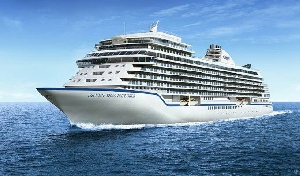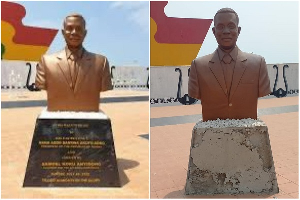Captain William Amanhyia, a Master Mariner and Lecturer at the Regional Maritime University (RMU), Ghana, has said the nation must invest in training more seafarers to tap into the global opportunity for about 800,000 seafarers to man new generational ships.
He explained that the Ghanaian seafarers were fit for purpose, as the country had a training scheme that was on the International Maritime Organization (IMO) whitelist for years.
He said even though interest in seafaring was waning globally, Ghana’s maritime sector had started extensive programmes that encouraged people to go to sea.
He believed therefore that with the proper policies and the government’s backing in training facilities, the country should be able to make a lot from it.
Capt. Amanhyia stated this at a Ghana Ports and Harbours Authority (GPHA) forum at Tema.
He said participants at an IMO Conference on Low Carbon Shipping, which took place in Mombasa, Kenya, collectively recognized that the decarbonization of shipping had brought the opportunity to develop and train new maritime skills.
He said that presented an opportunity for Africans to meet the labour demand, noting that “if we expect about 800,000 seafarers in Africa to man the new ships, we as Ghana can target 400,000 just like the Philippines, and we should be able to make half of what they make. It is actually a gold mine.”
He said Ghana must tap into it to achieve success experienced by the Philippines, where a vibrant and buoyant economy was built on the back of seafarer exportation, raking in close to US$ 7 billion annually.
Capt. Georgina Jopap, a Maritime Safety and Security Consultant, emphasized the need for a deliberate government policy to achieve this objective, using Bangladesh and other countries as examples.
She said: “The government of Bangladesh entered into a bilateral agreement with the Japanese government, where they sourced their crew from Bangladesh. Similarly, in Brazil, when they found oil, the government made a deliberate and conscious effort to ensure local participation within the offshore exploration sector.
“They paid the insurance premium of the Brazilians, when safety risk factors were raised, 10 years later, Brazil had a full complement of trained officers and workers to work in their offshore industry.”
Capt. Jopap, who was the first African woman to qualify as a Master Mariner, urged the government to initiate the creation of maritime training centres that would be responsible for training ratings at sea, separate from the Regional Maritime University, which was dedicated to training officers.
Capt. Christopher Obeng-Adamu, a Master Mariner and Lecturer at RMU, said for long-term benefits to be realised, like in the Philippines, the government must plan and define goals to be accomplished within set timeframes, adding that seagoing must be made attractive for the ordinary Ghanaian youth.
Capt. Obeng-Adamu stated that to remain desirable on the international market, Ghana must comply with the conventions that govern the conduct of maritime education training, meaning the GMU must set the standards for the auxiliary agents responsible for the recruitment of seafarers to comply with those regulations.
He added that the validity of the licenses of Ghanaian seafarers must be maintained at all times through periodic reorientation and revalidation with mother institutions so that they do not expire and render the seafarers unqualified.
Business News of Wednesday, 31 May 2023
Source: GNA

















